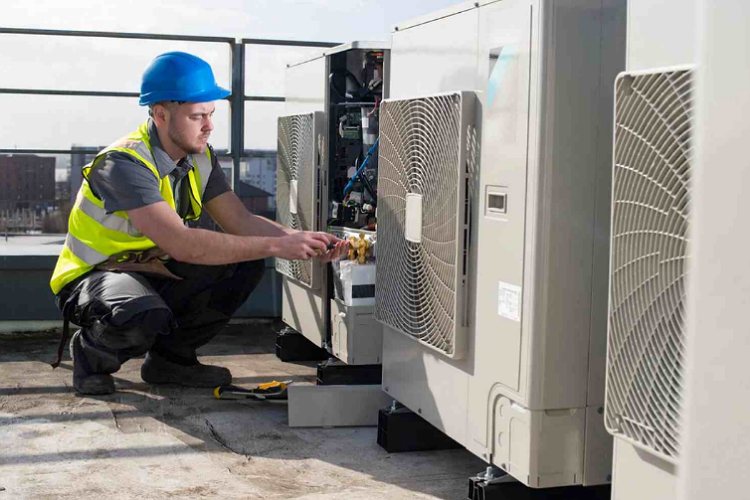What Are the Long-Term Energy Savings From Using HVAC Access Panels in Commercial Kitchens?
Commercial kitchen operators and owners face rising energy costs while managing demanding environments that push HVAC systems to their limits. While many focus on equipment upgrades or lighting for energy savings, proper HVAC maintenance is equally important in controlling long-term costs.
HVAC access panels offer a simple solution to streamline this process. These access doors and panels make routine maintenance faster and more thorough. They help reduce energy waste, extend system life, and deliver significant cost savings directly impacting the bottom line.
Why Energy Efficiency Is Important in Commercial Kitchens
HVAC systems work around the clock in commercial kitchens to handle heat, smoke, grease, and odors. Maintaining effective ventilation and temperature control isn’t only about basic comfort. It is also essential for food safety, air quality, and a safe work environment for staff.
That’s why commercial kitchens rank among the most energy-demanding spaces. According to Energy Star, restaurant energy consumption can be five to seven times higher per square foot than other commercial properties. Meanwhile, high-volume quick-service restaurants can use up to ten times more.
These numbers highlight the urgency for energy-smart practices. Without efficient HVAC systems, restaurants face higher utility bills, frequent breakdowns, and unnecessary equipment strain, ultimately raising long-term operational costs.
What Is an HVAC Access Panel?
An HVAC access panel is an opening that makes reaching specific parts of a heating, ventilation, and air conditioning system easier. Instead of removing large sections of ductwork or equipment, technicians can simply open the panel to inspect or service components like filters, coils, and internal ducting.
The primary purpose of these panels is to make HVAC maintenance more straightforward and efficient. They give technicians convenient access to ensure inspections and repairs can be completed faster, with less hassle and downtime.
This ease of access helps ensure that maintenance tasks—such as cleaning and filter changes—happen regularly, keeping HVAC units running smoothly.
Various types of panels are also available to meet different needs in the commercial kitchen. Insulated access panels stop air from leaking out and help save energy, which is ideal for busy kitchens.
If keeping heat in isn’t as important, then non-insulated access panels would work fine. However, if you’re installing in a rated wall, then a fire-rated access panel is required to meet building codes and regulations.
Sometimes, standard panels may not perfectly fit a commercial kitchen’s unique layout. With access door customization, owners can install panels designed specifically for their needs. Properly sized and insulated panels prevent energy leakage while ensuring technicians have the access points they need for effective upkeep.
Direct Energy Savings of Using HVAC Access Panels
The most immediate and measurable energy savings from installing HVAC access panels come from improved system maintenance. When technicians can easily access ducts and components, they can better keep systems clean, efficient, and balanced.
Improved Airflow
Clear airflow is one of the biggest factors in HVAC efficiency. Dirty ducts or clogged filters restrict circulation, forcing units to work even harder to maintain desired temperatures. Access panels make filter replacements and duct cleaning straightforward, ensuring air moves freely with minimal resistance.
Lower Energy Consumption
HVAC equipment naturally uses less power when it doesn’t have to work extra hard. Over time, this translates into noticeable reductions in monthly utility bills, an important benefit in high-energy-use environments, like commercial kitchens.
Leak Prevention
Insulated access panels reduce the risk of air leakage, which is one of the most common causes of energy loss. They help maintain consistent indoor temperatures without additional strain on the system by keeping conditioned air inside ducts and unconditioned air out.
Consistent Performance
Routine maintenance is easier to schedule and complete with accessible panels. This consistency prevents minor inefficiencies from snowballing into significant energy drains, keeping systems working at peak performance year-round.
Together, these benefits add up to direct, ongoing energy savings that help restaurants and food service facilities cut costs in a competitive industry.
Indirect Long-Term Energy Savings of Using HVAC Access Panels
Aside from the immediate efficiency benefits, HVAC access panels also contribute to long-term energy savings that aren’t always obvious at first. These indirect advantages can have just as much impact on the bottom line.
- Extended Equipment Lifespan: Regular maintenance prevents small issues from escalating into serious damage. By reducing the impact of wear and tear, HVAC systems last longer, so owners don’t have to replace expensive units as often.
- Reduced Repair Costs: When technicians can easily reach system components, they can spot and address problems early. This proactive approach prevents costly breakdowns and reduces the need for emergency repairs, which can be disruptive and expensive.
- Operational Stability: Consistent airflow and temperature control help kitchens run more smoothly. Without the risk of overheating equipment or uneven cooling, kitchens avoid operational disruptions that can indirectly drive up energy use and labor costs.
By combining these indirect savings with the direct benefits of improved airflow and reduced energy consumption, HVAC access panels deliver a powerful return on investment for commercial kitchens.
Investing in Efficiency
Energy efficiency in commercial kitchens isn’t just about upgrading appliances or lighting. It also comes down to strategic choices in infrastructure. Small additions like the HVAC access panel can deliver immediate energy reductions and long-term savings.
By lowering consumption, reducing repair needs, and extending system lifespans, these panels help kitchens keep utility costs under control while supporting sustainable operations.
Investing in access panels is a smart and practical way to achieve lasting energy savings for architects, builders, and restaurant owners looking to cut expenses in a competitive market.

